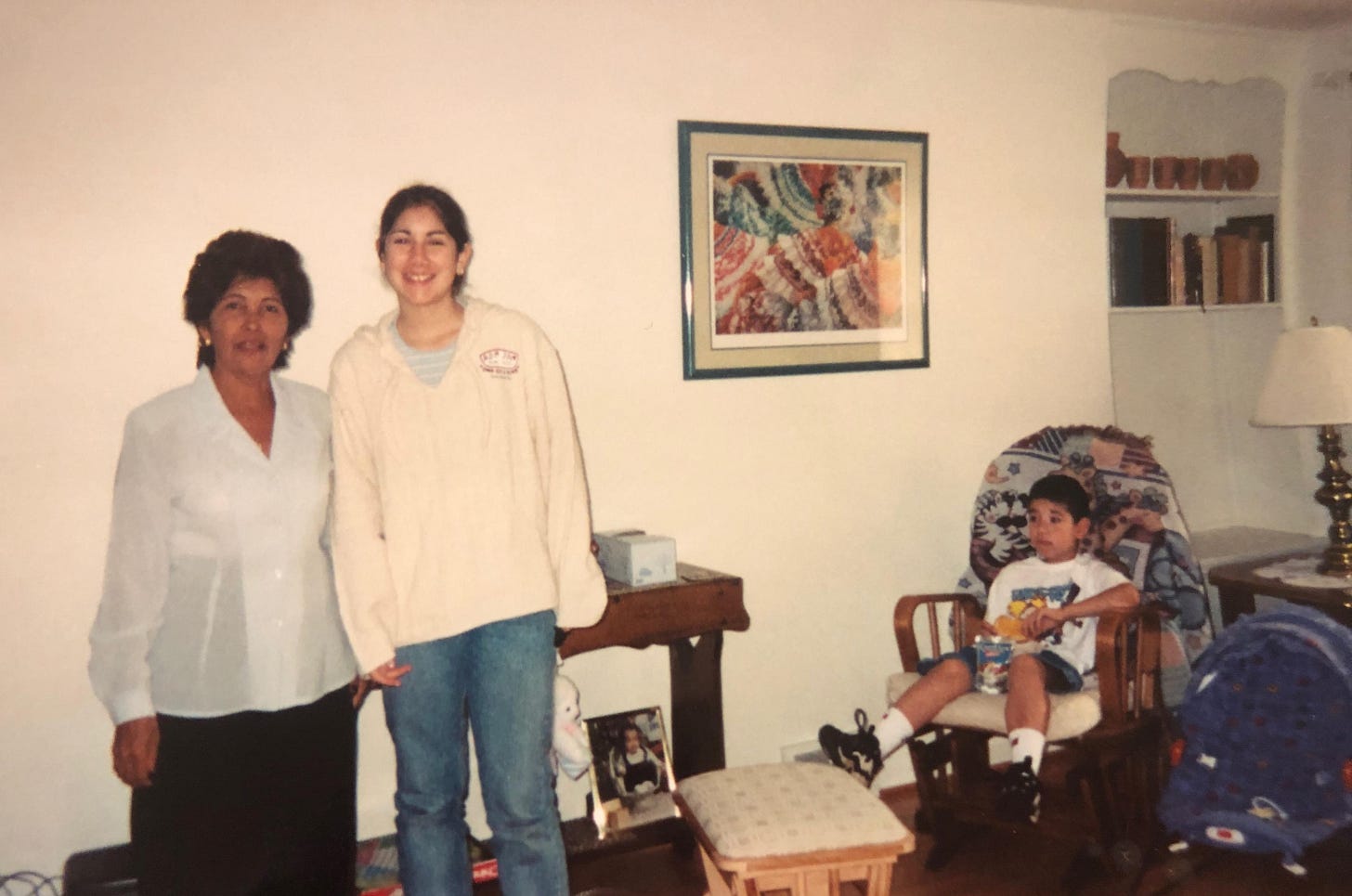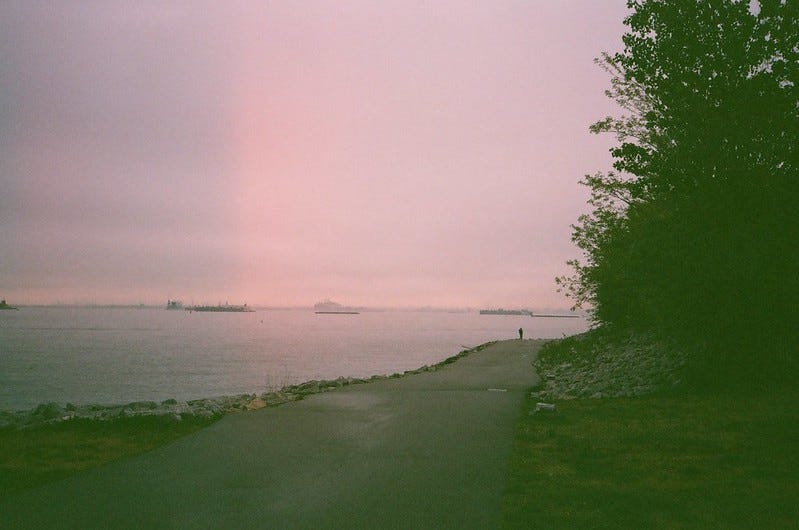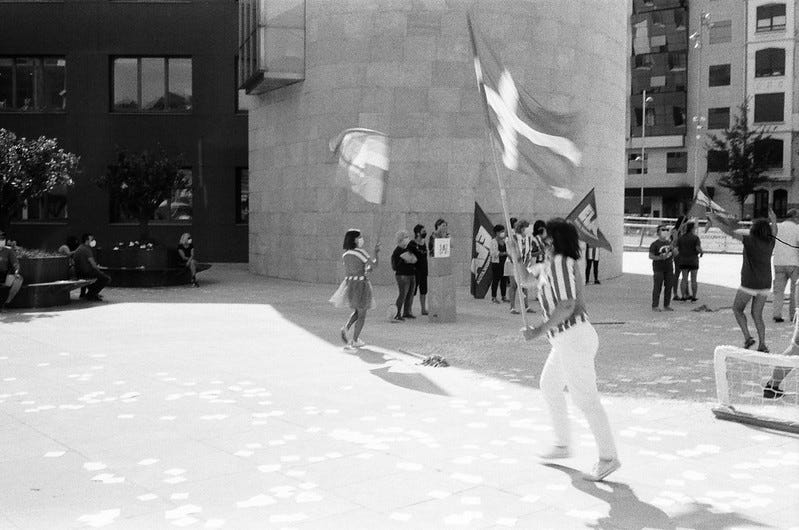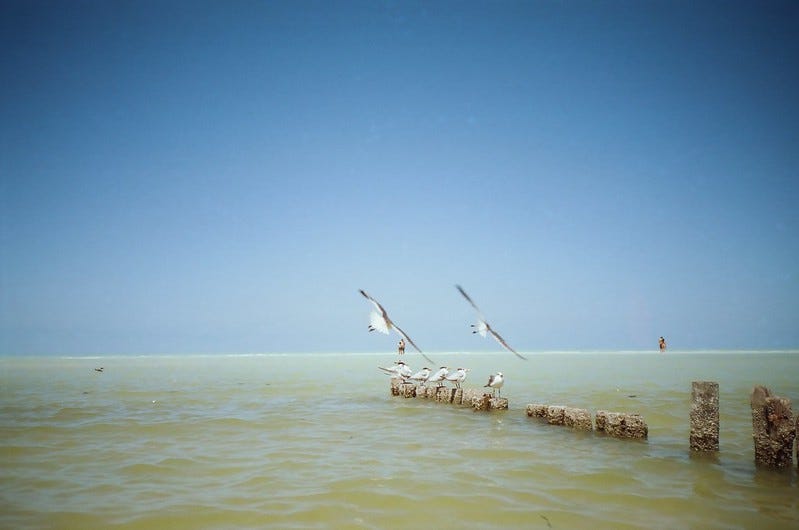Tapping into the untappable and writing the unwriteable
Writing, LL Cool J, and a little bit of Taoism
Midway through 2020, I deeply and profoundly wanted to alter the nature of my existence. I agonized and regretted over being a writer. I wished that I had been born to a different path. Whatever called me to writing—I wanted to transmute and transform it into data analytics. I wanted to shift my nature as an artist toward one of engineering, building, business. I had received rejections from almost every MFA program I had applied to, had lost my spot at the helm of a production company I had helped build from the ground up, and had no money. I had no job prospects. I was striking out applying for receptionist jobs. My next step was stocking at the local grocery store.
“Why do I need to be a writer?” I asked my therapist at the time. “My friends are passionate about data analysis. They knew from the time they were in college that they wanted to be consultants. Now, they have money, and I have nothing.”
The next MFA rejection almost broke me. I told my therapist, after that rejection, that I needed to force myself to quit writing. I would need to stop, cold turkey, and never look back. I would need to adopt another practice with the same fervor and bend myself into a different person altogether. Period.
After that call, I walked down to Bush Terminal Park in Brooklyn. I neared the water, where the concrete trail ends in a bank of stones that lead down to the Hudson. The waves lapped up against the stones. In the distance, the island of Manhattan called to me: an exuberant skyline of all the riches known to man. I had no place there. The thing that defined me—writing, art—would never make me money. But I had no inclination toward the trades that society valued. In my mind, the logic was easy: I needed money to provide for those around me; writing provided me with no money and no path in society; therefore, my writing actively prevented me from living a full life.
I tried my best to quit writing after that. I labeled it as a luxury of rich people (all the stories of famous writers plugging away at a beautiful retreat in nature? Psh—how’d they pay for the house?). I rationalized it by looking at my family. My family is composed of truckers, taxi drivers, and contractors. My abuelo polished floors. My other grandfather painted cars. I needed to find a similar outlet.
Later that same year, I visited Chicago, where I met with an old poetry professor and mentor. I told him of my struggle. I told him that, while I respected writing, writing wouldn’t pay the bills.
“Yes, of course,” he said. “But being an artist is the greatest calling a person can have.” He said this like stating that humans are built for long distance running: this is part of our nature. The thought stuck with me, of course, because, after everything, I never succeeded in quitting writing. Writing, photography, filmmaking—they spoke to a need I have to reflect and portray what I see in the world, a need that has persisted since I first wrote a whole page in 2nd grade while we practiced sentences; a need that has persisted since I made skate videos as a teenager, thinking of how to evoke a reaction by placing music over a moving image.
“Calling” might have been the lens I needed to see my writing in a different light. Engineering can be a calling and it can be a profession. Writing didn’t need to be my profession to also be my calling—but, grasping at a way to find some coin, I concentrated on my one skill. A friend, at the time, consoled me when I mentioned beating myself up over being broke—I couldn’t afford the fun trips, the hangouts in NY, and I felt unmoored, lost—by saying that, through every up and down, I had one consistent undercurrent in my life: writing.
Running away from this undercurrent only pulled me further from my inner nature, the one I nurtured as a kid, and this only damaged my sense of self more. Not all of us know our “calling,” and the difficulty of finding a calling, and undercurrent, is that we try to mesh our calling with a professional box, career, job. The ideal, in our minds, is something like loving music as a kid and ending up touring the world stage as a musician in later life. But for most people, the infinite variations of this elude all of the pathways we’ve seen among others.
Hence, the main challenge, I think for many people like me: finding your inner nature, staying true to that, and blocking out all the other bullshit. Christopher Alexander captures this well in his book “The Timeless Way of Building”:
Most men are not fully true to their own inner natures or fully “real.” In fact, for many people, the effort to become true to themselves is the central problem of life. When you meet a person who is true to himself, you feel at once that he is “more real” than other people are.
Oh… damn. Sounds intimidating, no? The issue, understated by Alexander, and difficult for me to capture here, is how the hell we discover the inner nature to begin with. How do you know how to be “true” to yourself without knowing yourself? How do you cut through the pressures of what others want you to be, what society wants you to be? Lord knows society wants us to cram into tiny boxes.
This doesn’t just apply to writing, or a calling that encapsulates a certain practice. “Inner nature” can describe how we respond in relation to our culture, our gender, our religion, our way of being around others. This only complicates this same search, though it also explains our admiration for those, who, as Alexander describes it, are “more real.”
Here’s Dwyane Wade talking about his daughter, Zaya, who is trans:
“I went years without telling my chef that I don’t like cilantro on my burger — as an adult, it took me years to have the confidence to say that,” he said to CNN at the time. “My daughter, at 8 years old, had the confidence to say, ‘This is who I am. This is who I want to be.’”
The search for our “inner nature” can encapsulate person, place, culture, values, politics, calling, art. I wrote early on here in this Substack on finding “home,” because I’m still finding out how to think of myself as someone of mixed backgrounds and two countries. As far as I’m concerned, my journey to being “more real” has included the fumbling blocks where I went too hard in calling myself Latino, rolling R’s at every moment in the Latin American club in college—and the opposite, too, where I decried arroz con pollo as a kid and wanted to be like the other kids whose moms made mac n’ cheese for dinner.
What I wish I knew back then, in 2020, when I looked out over Manhattan, when I wanted to quit writing and change my innate personhood: this effort to become our true selves is worthwhile, it is meaningful, and it is never easy. It’s going to take a lot more stumbling. It’s going to take a lot more doubt. It’s going to take a lot more resilience.
The same thread of finding our inner nature, tapping into the untappable, writing the unwriteable, has taken shape in various philosophies, spiritualities, and religions. But here’s one way of thinking about this that keeps fueling me and my writing. It’s from Tao Te Ching:
Returning to the source is serenity…
If you don’t realize the source,
you stumble in confusion and sorrow.
When you realize where you come from,
you naturally become tolerant,
…
dignified as a king.
Shit’s crazy, right? I’d say Laozi hooked it up with the wisdom, but I had an earlier mentor who set me right: LL Cool J. In an interview, The Breakfast Club asks why he doesn’t disclose more about his business ventures, given how successful he is. Like, why not boast about being CEO of this that and the third? LL Cool J…”because it wasn’t important.” The other shit? The money? Nah. He goes, “I’m a rapper. I’m an MC. I’m okay with that. Let’s stop right there.”
He goes on to talk about how other rappers idolize the riches over the artistry. But why? “Yo, Stevie Wonder’s an artist. Michael Jackson was an artist….Salvador Dali was an artist! Pablo Picasso was an artist!”
Maybe, put in other words, he might have said something else. But being an artist is the greatest calling a person can have!
—
Thanks for reading. Big update — I have some fiction coming out soon in a mag. It’ll be my first piece. I’ll be pumped to share with you. Until then…todo suave, tranquilo. Cuidate mucho. Peace.






At this point, I’m making peace with the fact that I might not actually “make it” as a writer, at least not the ways I always dreamed I would. But I like my writing and work more now than I ever have. I’ve spent 20 years at this point toiling at it and it’s something I still love (mostly). I’m learning to just be grateful for that. Thanks for highlighting this experience for us!
Nice piece—looking forward to the novel! Hit me if you need someone to look at some pages for you.